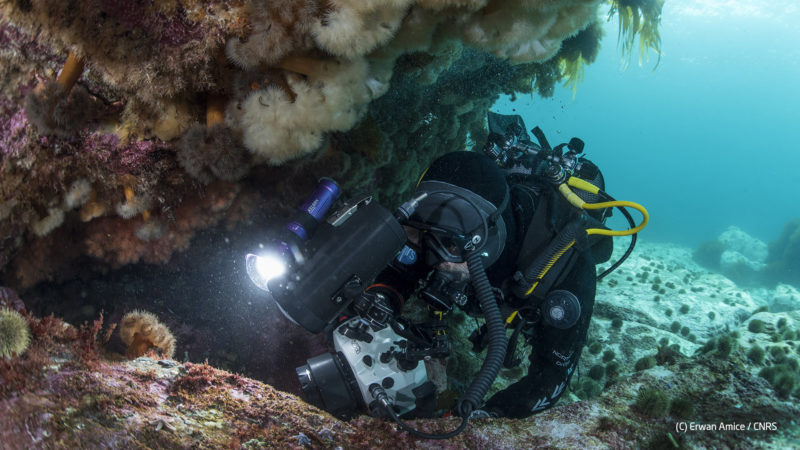4. The living ocean and ecosystem services

Contacts : Pierre Scemama, Johann Lavaud & Alexis Bazire
Scientific context
ISblue Theme 4 “Living Ocean and Ecosystem Services” proposes fully integrative approaches in natural and social sciences combining state of the art approaches in a wide range of academic fields: marine biology, ecology and biotechnology; fisheries sciences; ecotoxicology; chemical ecology; physiology and genetics; economics; maritime law and politics; geography and modelling.
It aims at addressing critical science priorities relative to the understanding and management of marine socioecosystems and hence to the provision of ecosystem services from bio-resources. From a methodological point of view, Theme 4 mobilizes a variety of observational and experimental methods, qualitative and quantitative approaches, modelling and participatory approaches.
Within the blue economy, development of biotechnologies based on basic research is an important dimension of the theme. Technical and nature-based solutions to mitigate impacts of change or valorisation of ecosystems for society based on bioremediation, chemical ecology and use of molecules and organisms are of particular interest.
Specific objectives
Research topics focus on the interactions between ecosystems and societies through the notion of ecosystem services and particularly on:
● the consequences of factors of change (climate change, habitat degradation and destruction, invasive species, overexploitation and pollution) on the functioning, dynamics and health of marine ecosystems from genes to organisms, populations or communities, in terms of functional and structural biodiversity, ecological functions and goods and services provided (including the valorization of marine biomolecules);
● the assessment of ecosystem services and impacts of changes on the dynamics of human societies interacting with marine ecosystems (at the levels of firms, sectors, territories and societies) in terms of use of services produced by marine ecosystems, pressures, governance and institutions. A particular focus is made on the analysis of impacts of different mitigation/adaptation options or institutional arrangements on ecosystems and services provided, and on the understanding and support of social transformations and interplay of actors including science-society interactions.
 Attention, vous utilisez un navigateur peu sûr !
Attention, vous utilisez un navigateur peu sûr !